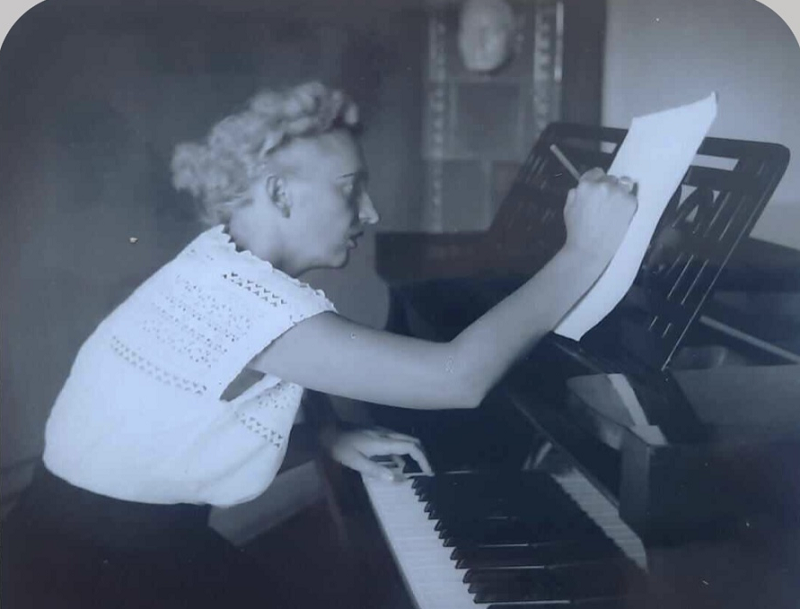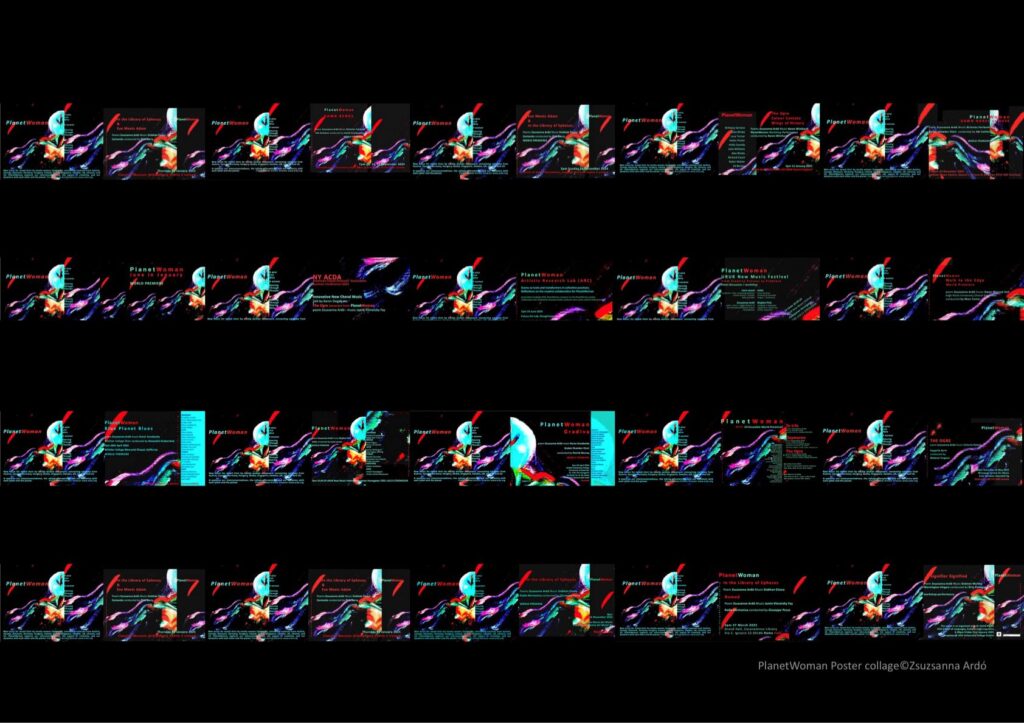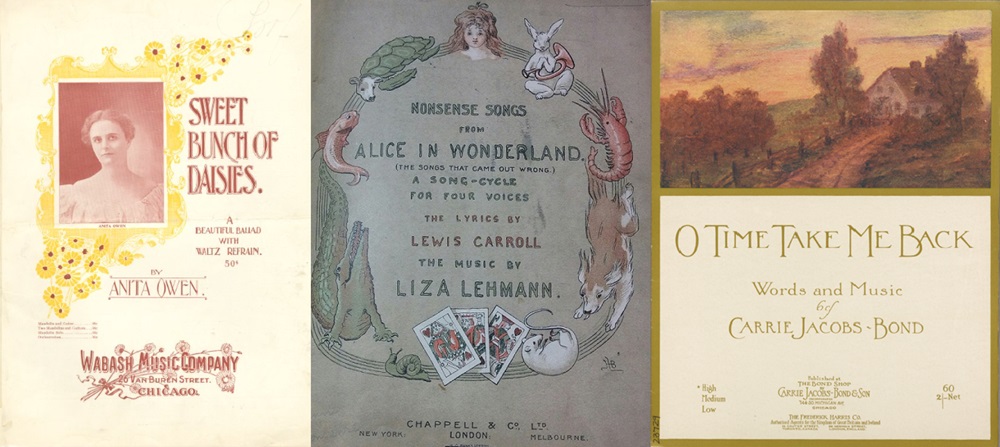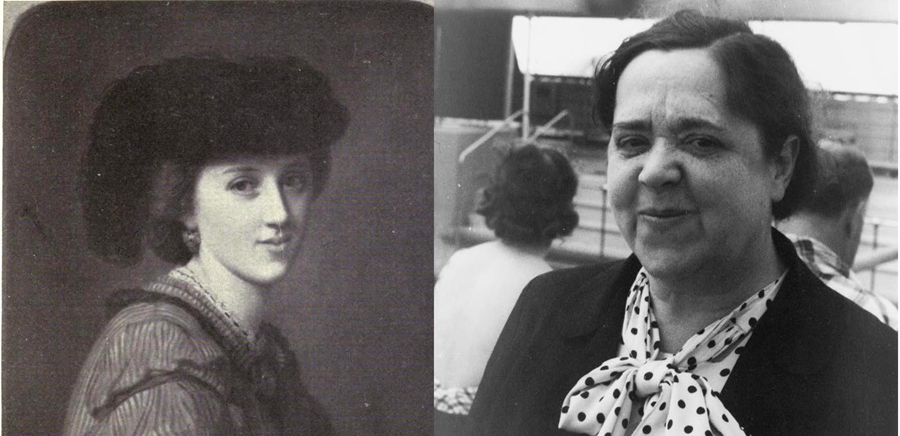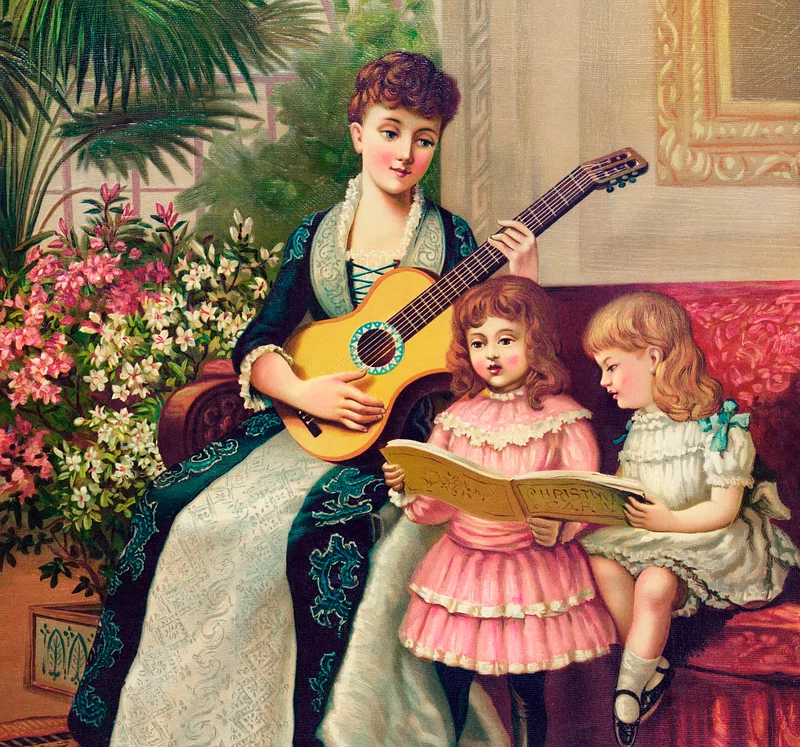I will begin with an arresting performance of Ivana Lang’s Nokturno (Nocturne), one of the most beautiful of her many songs. Lang, who died in 1982 at the age of 70, was a Croatian composer, pianist and pedagogue. Nokturno was one of several poems she set by her countryman, Filip Valjalo. Part of a 1960 cycle of songs for soprano, Nepoznatim stazama (By Unknown Paths), op. 54, the evocative words of Nokturno return to images of dreams, shadows, words, and the moon. Here is my translation:
Nocturne
In the still of the night, the moon has awoken my dreams.
Only the shadows were listening,
Though my words remained silent.
Once gentle shadows fell on my chest, my silent face told all,
With tender moon seeing our hearts filled with pain unspoken.
The moon then wanders away again,
While our sleepy and silent words fill beautiful dreams,
To oblivion do the shining skies carry us.
It is presented here by Lidija Horvat Dunjko and Darko Domitrović.
Starting from the song’s atmospheric introduction into a moonlit still of the night, Lang, a pianist first and foremost, makes voice and piano equal partners. Broad, suspended cantilena lines – broken at times by meter changes only to highlight the anguish of an unspoken pain – are shared by both. As the wide sweeps of the long piano interlude subside, so too does the pain in the lyrics, leading us into a recapitulation. The voice repeats the opening line, but it is now melismatic, less wordy, fittingly depicting the closing lines of the poet’s dreamy, sleepy and silent words. Nokturno ends with a showstopping, floating, pianissimo high C that transports us to the shining stars.
Documenting Lang
Lang studied piano at the Music Academy in Zagreb, and in 1937 went to the Salzburg Mozarteum to study composition with Joseph Marx. While better known during her lifetime as a pianist and teacher, she was also was a prolific composer. Lang left an oeuvre consisting of 110 opus numbers (35 of which are vocal compositions), with piano works and art songs her preferred mode of expression. Her legacy has been gaining more attention recently, mostly due to efforts of her daughter, Kristina Beck-Kukavčić, a singer and a lecturer at the Music Academy, University of Zagreb. The Croatian Music Information Centre in Zagreb has published new editions of her works, and more concerts have followed, culminating in a 2018 event Priča o Ivani Lang (A Story of Ivana Lang) at the Music Academy in Zagreb.


In 2022, the National and University Library in Zagreb marked two anniversaries of Ivana Lang – 110 years after her birth and 40 years since her death. Dr. Tatjana Mihalić curated a virtual exhibition, collating lesser-known information on her life and work, and featuring a trove of photographs. The exhibition website includes sections on Lang’s life (Ivanin život), her work as a pianist and piano teacher, her compositional opus (Ivanina djela), and her extensive diaries (Iz dnevnika). While the website is in Croatian, its photographic treasures transcend the language barrier. We see her in official photos and less formal snapshots from the family albums, by the piano, composing, teaching, posing on holidays and strolling down the streets of Zagreb.
Lang as Diarist
The most fascinating part for me, however, was the section on Lang as an avid diarist. Her thoughts on numerous cultural events and music premieres provide a unique window into decades of cultural life in Croatia, starting with post-World War II years. Detailed accounts of her life and work portray a multifaceted individual. We see a consummate professional immersed in music and a compelling need to compose; a strong woman who initiated a divorce but refused an alimony; a mother struggling to provide for herself and her small daughter. As with many other women, her work often took a back seat, and we can only speculate what she could have achieved in more favorable circumstances.
This section features a video created by her grandson, Michael Beck. The first minute and a half narrate her letter to Filip Valjalo, a poet whose verses she often set to music, artfully juxtaposed with images of manuscripts, letters and annotated concert programmes.
In this video her letter to Valjalo begins at 0:31:
Rijeka, 22 July 22 1974
Today I am savoring my own paradise. I am alone in my flat with my piano. It is morning and still not that hot. It is in solitude that music rushes to my mind, notes spinning in my head getting hard to contain. I write down everything. I read your letter often. It is the most beautiful letter I received this summer. That beautiful style of yours. Do try to write stories or short novels, I guarantee that you will be very successful. I am sure you are working hard on your poems. Warmest regards from Ivana Lang. (My translation)
Having heard Nokturno for the first time just recently, I felt suspended in time by the beauty and timelessness of the emotion portrayed. Going back to the virtual exhibition after that, I pondered which turn to take in exploring Lang’s rich legacy. As a singer, I want to immerse myself in the sheer beauty of the vocal lines and learn more of her songs. I doubt that I can now curb my curiosity about the woman behind them, and as a music historian I want to delve into her written legacy and the context of the songs’ creation. The visual component of the exhibition makes me think of alternative forms of ‘translation’ through various media, opening up new avenues to pursue beyond the scope of this essay. Whichever path future singers, historians and audiences decide to pursue, they will find treasure troves exploring Ivana Lang’s legacy.
Note
For those who would like to explore the virtual exhibition but who do not read or speak Croatian, Google Translate works well. Translations from Croatian are not yet possible in DeepL.


